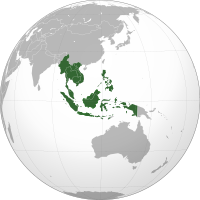
Photo from wikipedia
Worldwide, socio-cultural determinants have been shown to influence the beliefs of patients about their health and decision making for treatment. This is consistent with the evidence that cultural and religious… Click to show full abstract
Worldwide, socio-cultural determinants have been shown to influence the beliefs of patients about their health and decision making for treatment. This is consistent with the evidence that cultural and religious beliefs affect illness conceptualization and behaviors of Jamaican patients living with non-communicable diseases, such as diabetes mellitus and hypertension. Despite these known socio-cultural influences, an acknowledgment of relevance of adherence to pharmacotherapy has been grossly understudied. Furthermore, while poor adherence to pharmacotherapy, especially in the management of patients living with non-communicable diseases is associated with adverse drug reactions; reporting of such information in the pharmacovigilance process is inadequate. We review previous studies on the cultural and religious beliefs within the Jamaican context that may contribute to poor adherence to pharmacotherapy, especially among those patients living with non-communicable diseases. We support the ongoing perspective that current pharmacovigilance processes need retooling with the inclusion of socio-cultural influences on adherence to pharmacotherapy.
Journal Title: Frontiers in Pharmacology
Year Published: 2022
Link to full text (if available)
Share on Social Media: Sign Up to like & get
recommendations!